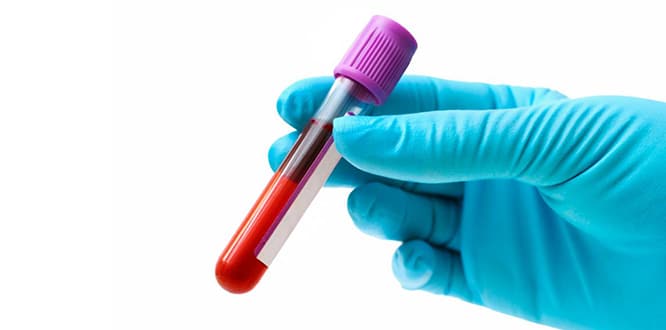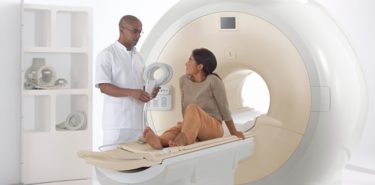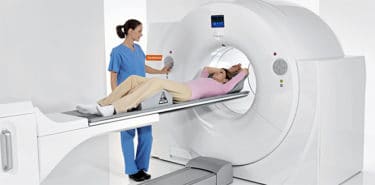Antibodies are proteins produced by the immune system as a response to foreign substances. They fight disease-causing viruses, bacteria, and toxins. Antibodies, which fight diseases, are produced specifically for certain antigens. Therefore, antibodies produced by the immune system of people with inflammation against COVID-19 are used in the treatment of the coronavirus. Antibody therapy includes the injection of the plasma, which is obtained through the separation of the antibodies in the blood of a patient who recover after the coronavirus treatment, into the COVID-19 positive patients. Antibodies remain in the circulation for the next few months after an infection and provide long-term immunity for the antigen. However, the duration of this period in the coronavirus treatment is unknown.
Table of Contents
What is an antibody?
An antibody, also known as immunoglobulin, is a Y-shaped protein which fights foreign substances as a part of the immune system. These foreign substances, called antigens, may be viruses, bacteria, or chemicals. Every antibody is uniquely produced to recognize a specific structure on antigens.
Antibodies bind to antigens to destroy them and produce immunity complexes which act as a signal for the immune system. The specific site which antibodies bind to antigens is called epitope. Antibodies have a fixed site, which is common in all types, and a variable site specific for a certain epitope.
What does an antibody do?
Antibodies, which are produced by B cells, play an important role in one of the most vital functions of the immune system. They recognize an antigen that may cause an infection and help destroy them by disrupting their structure.
Properties of antibodies
- Antibodies are produced for a specific antigen and equipped with special receptors that will only bind to the antigen.
- Their molecules consist of three equal sized parts. They have two types of protein chains, which is a heavy chain and a light chain. An antibody’s class and function is defined according to the structure of the heavy chain.
- As they are secreted in mass amounts and have a soluble structure, they are easy to obtain and observe.
- Their ability to bind specifically to a certain antigen enables their use in diagnostic purposes such as in pregnancy tests and therapeutic applications such as the treatment of cancers.
- An individual’s immune system may sometimes react to foreign substances which do not create an immune response in most people. These reactions are called allergies.
What is antibody synthesis?
Antibodies are synthesized by B cells (B lymphocytes) of the plasma cells which mature in the bone marrow. When an antigen enters into the body, the immune system recognizes it as a foreign substance. Then, it stimulates a number of mechanisms to eliminate the foreign substance, including antibody production.
When an antigen binds a B cell surface, it stimulates the B cell to divide and mature in a group of identical cells called a clone. The mature B cells secrete millions of antibodies into the bloodstream and the lymphatic system. Each B cell produces a unique antibody for each antigen.
What is an antibody test?
This is, also called serology test, is the analysis of the blood sample of a patient for the existence, absence or current amount of a certain antibody. Some tests focus on a specific antibody type. The most commonly analyzed types are IgM, IgG, and IgE.
In these tests, a blood sample is mixed with a known antigen to observe if an antibody is produced as a response or if an immune response occurs. The existence of antibodies is a sign of the immunity developed after the exposure to the antigen.
Why is an antibody test done?
- Due to the exposure to a contagious antigen
- To evaluate the immunity against a certain microorganism
- To diagnose various diseases such as autoimmune disorders, allergies, hepatitis, HIV, liver diseases, lupus, syphilis and thyroid diseases
- To investigate the reason behind a transfusion reaction or transplant rejection
- To monitor the course of an infection
COVID-19 (coronavirus) antibody test
Antibody tests developed for COVID-19 are used to detect the antibodies produced against a virus in the blood of the patients who are infected and recover. They are also used to identify asymptomatic people infected with the virus.
How is the antibody test done?
The tests to investigate the existence of certain antibodies for the diagnosis of infectious diseases are carried out in two ways:
- Rapid diagnostic kits are applicable at home like pregnancy tests and give results in approximately 15 minutes. However, there are some concerns about the accuracy of their results. As antibody production is a time-consuming process, the results taken in the first days after a virus enters into the body are unreliable.
- Analyses that require sending blood samples to a laboratory are usually more accurate; however, it takes 3-5 days for these tests to give results.
Types of antibodies and their functions
Antibodies are classified according to their molecular structure. Each class is indicated by a letter added to the immunoglobulin abbreviation Ig. Each one is found in various parts of body and have different tasks.
Immunoglobulin IgG
Considered a typical antibody molecule, IgG is the most abundant immunoglobulin found in the plasma. It is found in the blood and every type of tissue fluid. Its most important function is to fight bacteria and viruses.
They are the smallest antibodies in terms of size; therefore, they pass the placental barrier easily and provide the protection for the fetus. IgG tests are mainly used to diagnose and monitor infectious diseases. They are also used to evaluate the immunity against a disease.
Immunoglobulin IgM
IgM and IgG antibodies work together to provide short-term and long-term protection against an infection. When a person is exposed to an antigen for the first time, it may take up to two weeks to produce enough specific antibodies to fight the infection. The primary response which provides a strong antibacterial effect comes from IgM antibodies. IgG antibodies are produced few weeks after the immediate threat is eliminated.
When the body is exposed to the same antigen again, IgG will react much faster and stronger for the protection. IgM’s are the biggest antibodies in terms of size. They are found in the lymphatic and circulatory system. IgM test is used to diagnose infectious diseases and evaluate the immunity against a disease.
Immunoglobulin IgA
IgA is found in the mucous membrane such as the respiratory and gastrointestinal tracts, saliva, tear, and breast milk. It deactivates viruses and prevents bacteria from adhering to the tissues. IgA test is used to determine immune deficiency and in the diagnosis of celiac disease.
Immunoglobulin IgE
IgE is primarily related to allergies. It is usually found in the mast cell membrane. It plays an important role in allergic and anaphylactic reactions. IgE test is used to determine and monitor allergies to certain substances.
Immunoglobulin IgD
IgD is produced in a secreted form in the plasma membranes of immature B lymphocytes. It is usually found in very small amounts in serum. Physiological significance of its concentration in the blood is uncertain. It is thought that it plays a role in the immune defense by binding to white blood cells and mast cells. IgD test may provide important information about the humoral immunity.
Antibody therapy
Antibody therapy, also known as convalescent plasma therapy is basically the replacements of the immunoglobulins in patients with antibody deficiency. As a form of immunotherapy, it prevents serious conditions such as organ failure by relieving the severity of an infection.
Antibodies collected from previously infected patients are administered to the patients as antiserum for passive immunization against toxins and microbes. It may be applied intramuscularly, subcutaneously or intravenously. In the presence of an infection such as pneumonia and tetanus, it may be combined with antibiotic treatment.
It is used in the treatment of certain diseases such as genetic disorders, immunodeficiencies related to antibody deficiency, autoimmune diseases, allergies, recurring bacterial-viral infections, chickenpox, rabies and hepatitis.
Another immunization method which stimulates antibody production is vaccine. Vaccine consists of a weakened or diluted form of an antigen. With the help of a vaccine, the body can eliminate infections before they begin by immediately attacking the antigen form it previousle encounters. Antibodies produced by a vaccine before the exposure to an infective microorganism provide a long-term protection called immunity.
Antibodies in the treatment of the coronavirus
Whether an antibody therapy is effective against the coronavirus is yet to be established, as it is unclear whether the antibodies of the people with COVID-19 are sufficient for the treatment. The duration of resistance is also unknown. Further studies are needed.
This treatment method has been previously used in epidemics like polio, chickenpox, ebola and SARS. Scientists assume that it may contribute to the treatment of coronavirus patients in critical condition, especially for those in the intensive care with respiratory distress. FDA-approved COVID-19 antibody tests aim to identify those who have the immunity against the virus.
The relationship between antibodies and antigens
Antigens are pathogens such as bacteria, virus, and toxic substance. They are also protein molecules found in the surface of red blood cells.
Antibodies are proteins produced by the immune system as a part of our body’s natural defense to fight antigens. When antigens enter into the body, antibodies bind to them and neutralize them by changing their chemical composition.
Antibodies and the Immune System
The immune system is the natural defense mechanism of our body. It protects the body against diseases, malignant cells and foreign organisms by attacking them. When an antigen enters into the body, the immune system perceives it as a foreign substance and send signals to the different parts of the body.
B-cells first meet a virus and they start to produce antibodies for the antigen. Each type of produced antibody corresponds to only one antigen. The antibodies neutralize the antigen by attacking it and mark it for another attack.
Then, T cells are signaled to attack the antigen marked by the antibodies. Antibody production continues for several days until all antigen molecules are eliminated. After the elimination of the antigen, phagocytic cells clean the remainders of the infection.
After the antigen is eliminated, B cells remain in the bloodstream, ready to produce antibodies in case the antigen enters into the body again. The immune system recognizes the previously encountered microorganism and reacts much faster to eliminate it. This condition is called acquired immunity. It may occur after a disease or with vaccination.
Proper antibody production depends on the body’s ability to accurately identify foreign substances. Thus, our body can heal itself.
The immune system usually recognizes the antigens found in a person’s own cells and ignores them. However, sometimes the immune system is weakened and identifies a part of these antigens as foreign substances. It attacks the cells with the autoantibodies it produces. The autoimmune response may affect a single organ or multiple tissues and organs systematically, causing autoimmune diseases.
How to increase antibody production?
- Consume balanced amounts of sugar, salt and fats. Add vitamin and mineral rich foods to your diet. Consume fresh fruits and vegetables, which are rich in antioxidants, and prefer multigrain food.
- To strengthen the immune system, sleep approximately for 7 hours every day regularly.
- Drink plenty of water
- Exercise or walk outdoor.
- Try to avoid stress, as the immune system may overproduce some hormones to deal with stress. These hormones may cause imbalance in the body.
- Wash your hands frequently and take care of your personal hygiene.
Antibody increasing foods
- Vitamin B12: Milk, yogurt, eggs, red meat, fish, offal, chicken and legumes
- Vitamin A: Liver, butter, cheese, egg yolk, tomatoes, celery, artichoke, cabbage, onion, garlic, carrots, potatoes, melon, banana, apricot and rosehip.
- Vitamin E: Grains such as wheat, corn, rice, leafy greens, and dried nuts such as walnut, almond, hazelnuts, peanut.
- Vitamin C: Citrus fruits such as lemon, orange, grapefruit, leafy greens such as spinach and parsley, apple, red grapes, plum, kiwi, peach, cherry
- Omega-3: Chia seeds, flaxseed, avocado, walnut, fish such as salmon and mackerel



